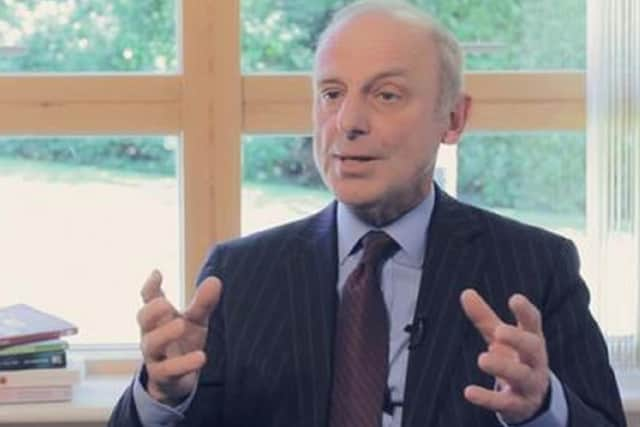Professor of Medicine at university near Milton Keynes says 'Coronavirus is cornered and will burn out' by the end of April
This article contains affiliate links. We may earn a small commission on items purchased through this article, but that does not affect our editorial judgement.
and live on Freeview channel 276
The World Health Organisation and Lancet have reported that each person who is infected with Coronavirus will infect about 2.6 other people.
However a report into research conducted by the London School of Hygiene and Tropical Medicine suggests that number - known as the all-important R number - could now be as low as 0.62, as lockdown measures start to make an impact.
Advertisement
Hide AdAdvertisement
Hide AdProfessor Sikora, who is chief medical officer at Rutherford Health, professor of medicine at the University of Buckingham and former director of the WHO Cancer Programme, said evidence from China and South Korea told Sky News yesterday that he believed the "main wave" of high death-rates would be over by the end of the month.


"The real question is 'how do you relax social distancing at that point?', and there's no science behind that, it's just a judgement call and it's a difficult judgement call," he told Sky News.
"Testing, for those who have been infected and therefore to know what percentage of the population in the UK are infected with the virus is sort of critical now, because that would guide the relaxation of social distancing and help business to get started again."
He went on to talk about how many studies, with restricted samples - such as on cruise ships of people infected with coronavirus, showed how half of those who contract the illness have no symptoms, or are asymptomatic.
He added: "That's telling us something.
Advertisement
Hide AdAdvertisement
Hide Ad"Somehow, if we could test the population and find out who exactly has gone through the process of coronavirus, then you can release them into the population.
"If it's 40% or 50% - and the epidemiologists argue about that already - it may be possible to liberate social distancing [in the] first [or] second week in May.
"We'd all be delighted if that is the case. At the same time, if it's not the case and, say, only 10% of the population have been infected, we may have to wait until September, and that would create huge social problems for this country and other countries."